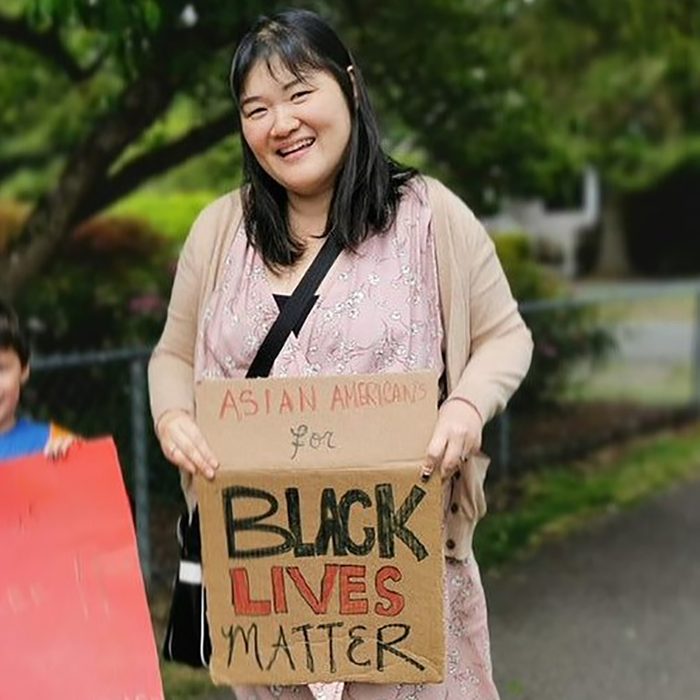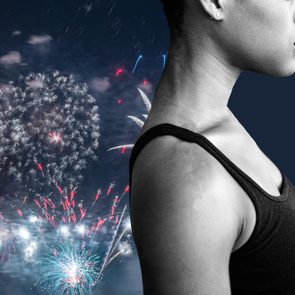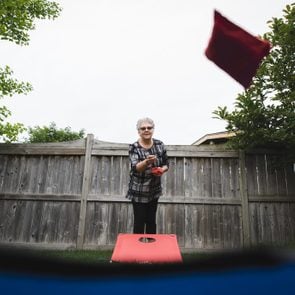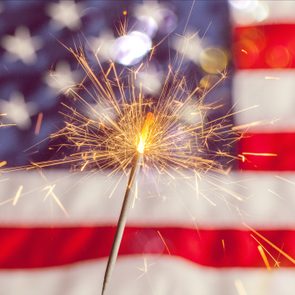As an Immigrant, This Is What the 4th of July Means to Me
Updated: Jun. 27, 2023

For many U.S. immigrants, the 4th of July is a day to reflect on what America stands for, recommit to the fight for progress, and hope for a brighter future.
At nine years old, I immigrated to the United States with my family, after a nearly 10-year wait for the application to be approved. We left home with stars and stripes in our eyes, following my parents’ dream for a brighter future for us all. Since then, for more than 30 years now, I’ve spent the 4th of July like any other American: watching parades, taking in grand fireworks displays, and celebrating the holiday with popsicles and hot dogs.
For three generations, my family had been part of the Chinese diaspora. My grandparents’ generation left Northern China due to famine. They migrated to South Korea and helped build a vibrant Chinatown there against all odds, surviving Japanese occupation and then the Korean War.
I grew up playing in MacArthur Freedom Park, a monument to the American general who landed in Incheon Harbor and fought back North Korean forces to reclaim the southern half of the Korean peninsula. This intervention resulted in the divided Korea we know today. Given the ongoing U.S. military presence in Korea, America’s influence (both positive and negative) was ever-present in our daily lives long before our immigration.
Becoming American meant that, finally, I would belong
Being part of a diaspora signifies displacement. In Korea, we were never fully accepted, and we faced systemic barriers. After all, I wasn’t granted citizenship despite being the second generation born there. Instead, my family’s citizenship was determined by paternal lineage.
Because of the wrought political history and the fact that mainland China was closed off until the late ’90s, we were granted Taiwanese citizenship. But people called us Korean whenever we visited there, the island nation struggling to defend its own unique identity. Until we immigrated to the United States, it seemed I never belonged anywhere and no country belonged to me.
When we became naturalized U.S. citizens, we could finally vote and own property in the country of our residence. I found a home where I felt empowered enough to fight against injustice and discrimination. Here, in this imperfect nation, it seemed I would finally find permanence and a sense of belonging.
Being an immigrant meant never taking America for granted
America’s democracy and the assurance of my constitutional rights enveloped me in its power and protection—I would never take them for granted. By the time I was old enough to vote, I discovered in myself a fierce patriotism that lived alongside my strong Asian American identity.
In college, I studied political science and beamed during open political discourse, understanding all too well that these kinds of discussions weren’t allowed in so many parts of the world. I celebrated our trust in the freedom of speech, the rule of law.
I reveled in democracy in action during my internships at the state senate, in Washington, DC, and later at the U.S. embassy in Korea. “You don’t know how good we have it here,” I’d say to my American-born college friends who always seemed more critical of the government than I did. I didn’t always have these rights, so I’ve never felt entitled to my country or my privileges.
Facing our nation’s problems became unavoidable
When I became a mother, how I viewed my country changed. For four excruciating years, we raised our child in a country where the president regularly incited hate, weaponizing race, stoking xenophobia, and contributing to a national climate during which more than 10,000 anti-Asian hate incidents were reported.
The systemic racism brought to light by the Black Lives Matter movement forced us to bear witness to the murders of George Floyd, Breonna Taylor, Elijah McClain, and too many more. Border camps detained thousands of migrants with the same stars and stripes in their eyes as my parents had, but they were more desperate and disadvantaged. Their babies were separated from them and locked up for years. It felt like the desecration and destruction of the soul and values of the American Dream.
Recently, a leak from the Supreme Court announced an upcoming reversal of Roe v. Wade, signaling an end to federally protected reproductive rights for women and putting public health, especially that of women who live in poverty, at dire risk.
Mass shootings terrorize the nation again and again with no change. Lawmakers and law enforcers stand by, paralyzed by fear, while our children are massacred in schools. These are the very same American schools millions of immigrants risked their lives to send their kids to. The same American schools that were supposed to be a beacon of safety and learning.
It seems like the rule of law that I took so much pride in has unraveled. Furthermore, I am forced to reckon with the fact that perhaps it was merely an illusion all along—for so many BIPOC people, a rule of law governed by a just criminal justice system never existed.
Reflecting on what America stands for is part of the 4th of July
In my grief, it is easy to fixate on gun violence, racism, xenophobia, sexism, and the like. The systemic problems faced by our nation seem overwhelming. When I mourn for my country, it is hard to get out of bed. But I refuse to give up on America.
I am an immigrant, like many of my fellow Americans and their ancestors, and I am strong. I remind myself that not all of these problems are unique to the United States. Wherever we are, we have to fight for fairness and equal rights, fight to protect our loved ones and our pursuit of happiness. We Americans represent the rebellious spirit of those who fought and won against the least likely of odds, of those who signed the Declaration of Independence with a better way of life in mind.
We must now stand as a nation to reckon with our government’s past and present crimes: what we did to the Native Americans, our history of slavery, and the ensuing inequality that continues today.
We must teach our children that Black Lives Matter. We must stand for Dreamers. We must stand for hope. We must fight for change. We must right our wrongs for putting our children’s lives at risk for our love of guns. We must fix this and restore the heart of our nation.
Finding hope gives us strength
In my darkest moments, I find light and hope in community organizers who don’t give up. I seek strength in my local BIPOC Moms+ group, in the Supreme Court whistleblower, in activists from across the country, in movements like Stop AAPI Hate and Asians for Black Lives Matter, in everyday citizens like Christian Cooper and bystanders who take action against hate attacks in ways both quiet and bold. For the public-school teachers and administrators who have been asked to serve far beyond what they signed up for, I gather my strength in gratitude and solidarity.
This 4th of July weekend, I refuse to allow hate and injustice to hijack our national symbol, our flag, or my patriotism. This is my homeland—a country that has adopted me and nurtured me to thrive, despite my share of hurdles and challenges. And in turn, for decades, I have been giving back. I am making my country better.
Here, as long as I am still free to use my voice, I’ll fight for change every single day. In “The Hill We Climb,” Amanda Gorman wrote, “We’ve learned that quiet isn’t always peace, / and the norms and notions / of what just is / isn’t always just-ice. / And yet the dawn is ours / before we knew it, / somehow we do it. / Somehow we’ve weathered and witnessed / a nation that isn’t broken / but simply unfinished.”
Though the work may never be finished, let us come together for progress.



